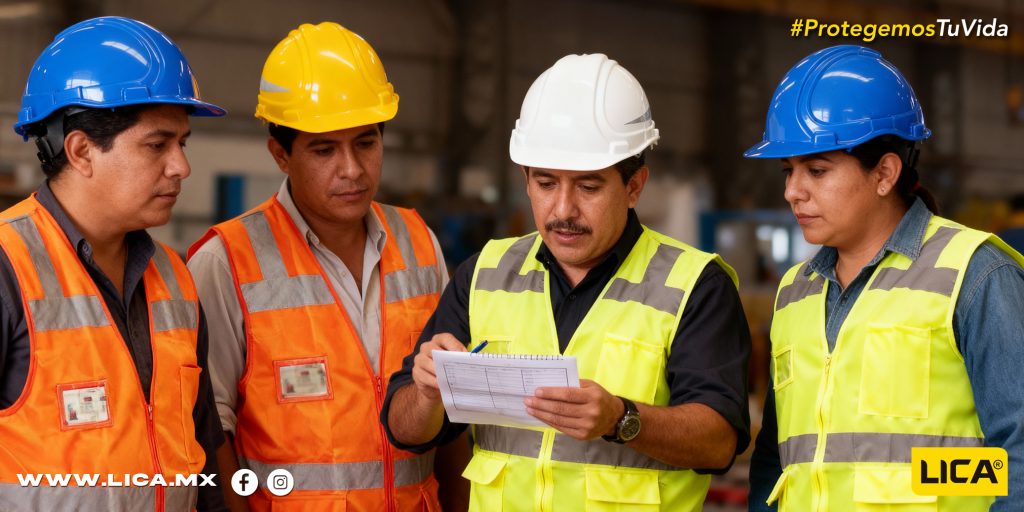
The Unexpected Visit That Doesn’t Have to Be a Problem
Have you felt that slight chill when you hear the words “labor inspection”? You are not alone. For many business owners and Human Resources managers, the idea of a review by the Secretary of Labor and Social Welfare (STPS) generates uncertainty and, at times, anxiety.
Mexican labor regulations are complex and constantly changing. Maintaining up-to-date compliance is a considerable operational challenge, especially for Small and Medium Enterprises (SMEs). An unexpected labor audit can uncover non-compliance that results in significant fines. The peace of mind of knowing that your business is operating within the framework of the law is priceless.
The good news is that, with the right preparation and advice, an inspection doesn’t have to be a stressful experience. On the contrary, it can be an opportunity to validate and strengthen your company’s legal and administrative structure.
In this article, we will thoroughly break down Labor inspections: what they review and how to prepare.
Understand the Rules of the Game and Avoid Surprises
A labor inspection is an essential administrative procedure. Its main objective is to monitor compliance with the current labor legislation. This includes the Federal Labor Law (LFT) and the various Regulations and Official Mexican Standards (NOMs) that govern our country.
The STPS acts as the authority responsible for these reviews. Its labor inspectors have the power to visit any work center. This is done to verify that the rights of the workers and the safety and hygiene conditions are respected.
There are fundamentally three types of inspections:
-
Ordinary: These are scheduled and carried out annually or by lottery.
-
Extraordinary: These occur due to complaints from workers or when there are work accidents.
-
Verification: These are carried out to check that the observations from a previous inspection have been corrected.
Understanding the type of visit and the process is the first step toward successful management. Proactivity in regulatory compliance is your best defense strategy.
What Documents and Areas Does the STPS Scrutinize?
The inspectors focus their attention on three major areas of compliance: General Working Conditions, Safety and Hygiene, and Training and Qualification.
Regarding General Working Conditions, crucial aspects will be reviewed. Some examples are the individual employment contracts and the documentation that certifies workdays. Salary payments are also reviewed, including bonuses and vacations. The integration and operation of the Joint Commission on Productivity, Training, and Qualification is another key point.
In the area of Safety and Hygiene, verification is made that the NOMs related to occupational hazards are met. Safety programs, the use of Personal Protective Equipment (PPE), and emergency response are analyzed. The goal is to ensure a safe and healthy work environment. The identification of hazards and risk assessment are fundamental.
Finally, in Training and Qualification, documentation is requested to prove the continuous training of employees. This includes training plans and programs and certifications of labor skills (Form DC-3 and DC-4).
The Peace of Mind of Legality and Operational Optimization
Imagining a scenario where your company not only passes the inspection without a single fine, but does so with an excellent rating, is an achievable goal. This is more than just avoiding an unexpected expense. It is an investment in the reputation and efficiency of your organization.
Rigorous legal compliance translates into superior risk management. It reduces the probability of labor lawsuits and improves staff morale. When workers perceive that the company cares about their well-being and safety, productivity and talent retention increase.
The preparation process for Labor inspections: what they review and how to prepare should be a deep internal review. It is a preventive audit that allows you to identify and correct weaknesses before the authority does.
Keys to Successful Preparation
The key is organization and anticipation. Do not wait for the visit notification to start reviewing your files.
-
Rigorous Document Organization: Have a folder (physical or digital) with all labor documents organized. This includes payroll receipts, contracts, internal regulations, and commission minutes. The accessibility and updating of information are critical.
-
NOMs Checklist: Periodically review the NOMs that apply to your industry. Make sure your facilities comply with the required signage, lighting conditions, and fire protection.
-
Inspection Simulation: Performing an inspection drill will give you an objective view of your compliance status. You can detect errors in the process and documentation that can be easily remedied. Having specialized legal advice in labor law for this internal audit is highly recommended.
-
Training of Key Personnel: Ensure that Human Resources personnel and safety managers are trained. They must know how to act and what documents to present to the inspector at the time of the visit.
Your Next Step Towards Stress-Free Compliance
The development of a solid document management system is the backbone of your company’s legal defense. The proactive management of your legal compliance minimizes risks and maximizes efficiency.
Labor inspections: what they review and how to prepare are a reflection of the operational health of your business. Do not view them as a threat, but as a test of excellence.
Conclusion
We have thoroughly explored the labor inspection process by the STPS. The scope of the reviews in the areas of Working Conditions, Safety and Hygiene, and Training has been detailed. The key to success lies in advance preparation, impeccable document organization, and a culture of compliance within the organization. Investing in the legality of your operation is investing in the sustainability and peace of mind of your business future. Do not leave your compliance to chance. Act now.
References
-
Secretaría del Trabajo y Previsión Social (STPS). Guía de Inspecciones Federales del Trabajo (Guide to Federal Labor Inspections).
-
H. Congreso de la Unión. Ley Federal del Trabajo (LFT – Federal Labor Law).
-
Diario Oficial de la Federación (DOF). Normas Oficiales Mexicanas (NOMs) aplicables en materia de seguridad y salud en el trabajo (Official Mexican Standards (NOMs) applicable to occupational safety and health).


